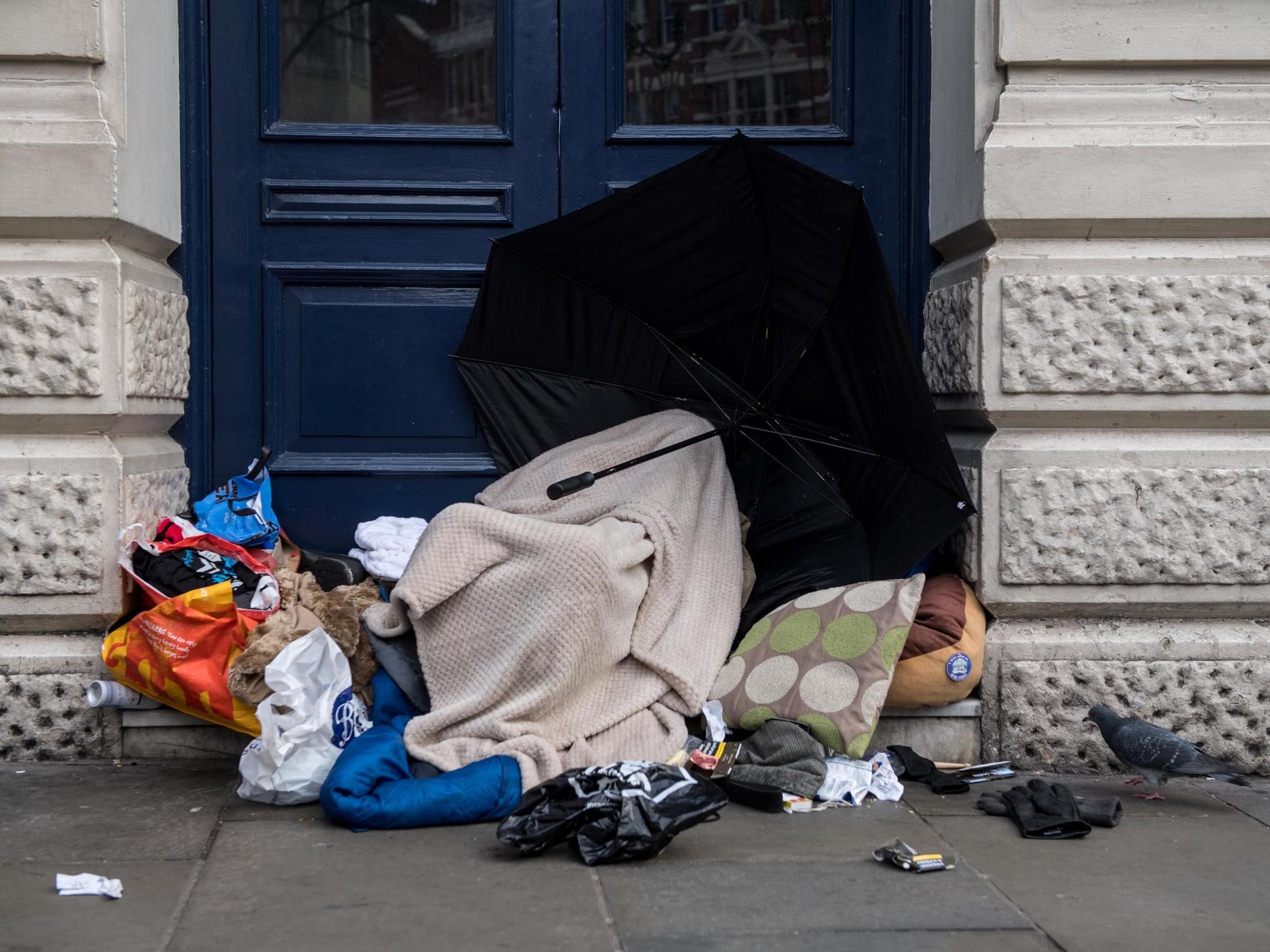Ministers urged to scrap ‘deeply immoral’ plans to deport foreign rough sleepers
Leading charities and London Mayor warn new immigration rules will deter already vulnerable people from seeking help and put them at greater risk of exploitation

Ministers have been urged to scrap “deeply immoral” plans to deport rough sleepers, with the London Mayor and leading charities warning that they will endanger lives and undermine progress in reducing homelessness.
The Home Office announced last month that rough sleeping would become grounds to cancel or refuse a person’s right to be in the UK under the new immigration rules, due to come into effect on 1 December.
Leading charities have written a letter to home secretary and the housing minister calling on them to immediately reconsider the plans, warning that they would deter already vulnerable people from seeking help and put them at greater risk of exploitation and infection from Covid-19.
The letter, signed by 78 organisations including Crisis, Shelter and St Mungo’s, warns that the new rules would punish people for being homeless and take them further away from seeking support if they feel it would risk deportation.
“Those legally in the UK with no access to state support, and for whom employment is not possible during the pandemic, risk being pushed into exploitative work and potentially modern slavery to avoid sleeping rough and putting themselves at risk of deportation,” the letter states.
“It may also risk domestic abuse survivors being forced to stay with their perpetrators or unable to seek help.”
The Mayor of London has written a similar letter along with local authority leaders urging the ministers to scrap the “deeply immoral” plans, warning that they would “set a dangerous precedent”.
Sadiq Khan said: “The injustice and cruelty exhibited by the proposed new immigration laws is a chilling reminder of how the most vulnerable people in our society can be targeted when those in power don’t believe anyone will notice or care.”
Announcing the plans last month, the Home Office said removal of rough sleepers would only take place if they refused offers of support and were engaged in persistent anti-social behaviour, and that the new provision would be used “sparingly”.
But Jon Sparkes, chief executive of Crisis, said many people in the UK legally were forced into rough sleeping because they are not able to access mainstream support with housing and benefits due to “no recourse to public funds” (NRPF) conditions placed on their immigration status.
“People who are newly homeless and are in the UK legally could be driven away from seeking support at the most dangerous of times,” he added.
“The Westminster government has committed to ending rough sleeping in England by the end of this parliament and we are ready to work with them on positive alternatives to this dangerous approach.”
It comes amid fears that there is a lack of measures in place to protect rough sleepers during the second lockdown, with charities calling on the government to re-introduce the “Everyone In” scheme, which housed homeless people during the first months of the pandemic.
With winter approaching and the threat of homelessness increasing for many, the signatories are re-emphasising this demand, as well as calling for a 12 month suspension of NRPF conditions.
Renae Mann, National Director of NACCOM, said: “If the government is serious about ending rough sleeping, they need to build on the positive Everyone In scheme and suspend NRPF restrictions, enabling everyone at risk of homelessness, regardless of immigration status, to access accommodation and support during this unprecedented public health crisis.”
Polly Neate, chief executive of Shelter, said the new immigration rules were a “huge step backwards from a government that says it wants to end rough sleeping”.
She added: “Seeking to deport people for being homeless means that fewer people will come forward for help when they are especially vulnerable. Homelessness alone should never be a reason to force someone out of the country.”
Steve Douglas CBE, chief executive of St Mungo’s, said: “We stand with our colleagues in other homelessness charities, in expressing our concerns about this new immigration policy. Our outreach teams work tirelessly delivering life-saving services. This does nothing to build trust for those sleeping rough who need our support.”
A Home Office spokesperson said: “We remain committed to ending rough sleeping for good and have been working hard to ensure the most vulnerable in our society have access to safe accommodation. This year alone, we have provided over £700m in funding to support rough sleepers.
“For the small minority of EEA migrant rough sleepers who continue to refuse government and local authority support and repeatedly engage in persistent anti-social behaviour, the new immigration reforms mean they could lose their right to be in the UK. This will mean EEA nationals can be treated the same as non-EEA nationals.
“This would be a last resort measure and initially individuals would be asked to leave voluntarily with government support. In the event that they refuse, we may take the step to remove them.”
The spokesperson didn’t comment on the fact that the new rules will mean non-EEA nationals could face deportation for rough sleeping from 1 December.
Subscribe to Independent Premium to bookmark this article
Want to bookmark your favourite articles and stories to read or reference later? Start your Independent Premium subscription today.

Join our commenting forum
Join thought-provoking conversations, follow other Independent readers and see their replies